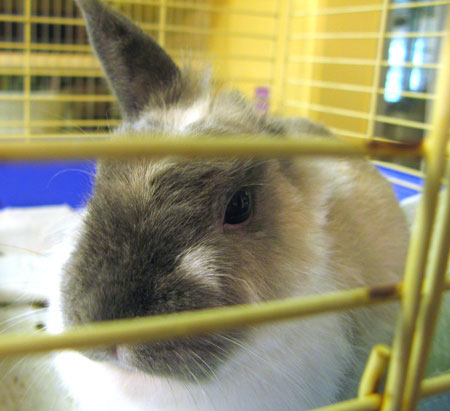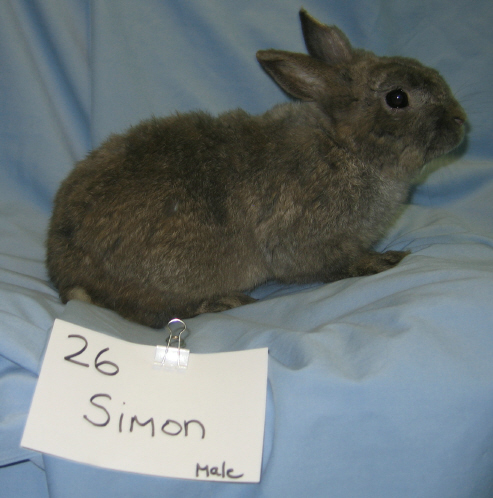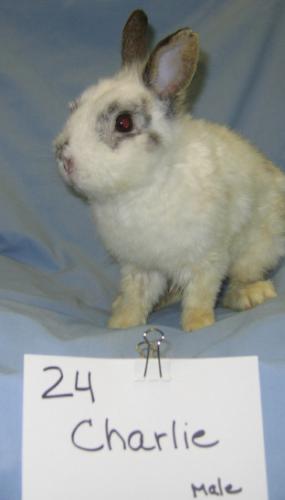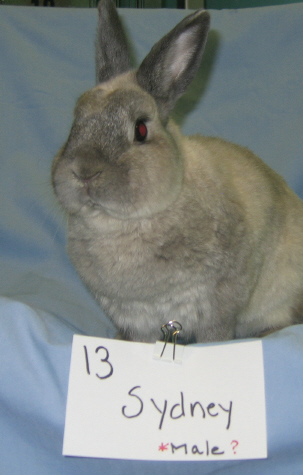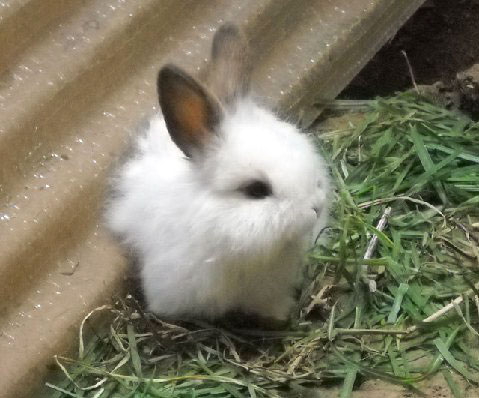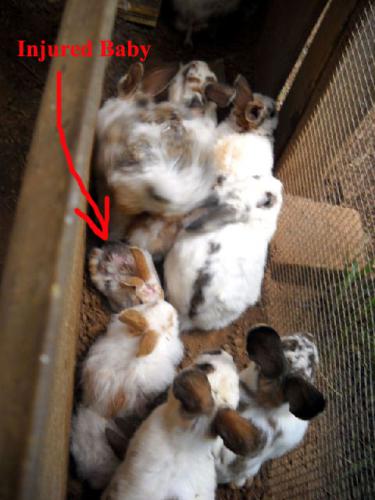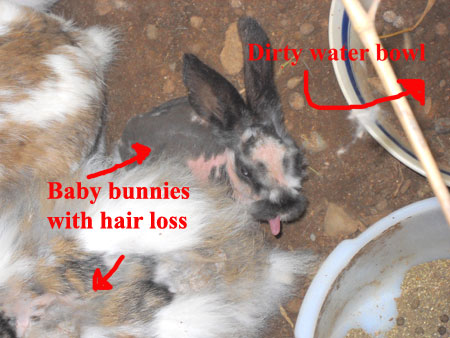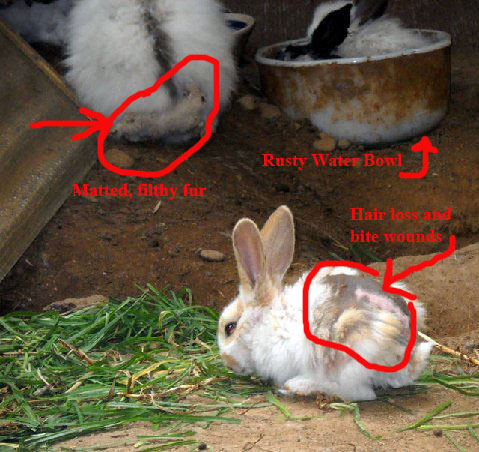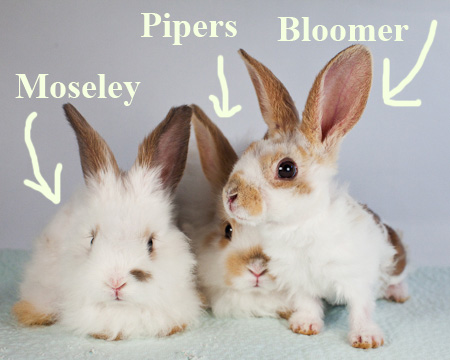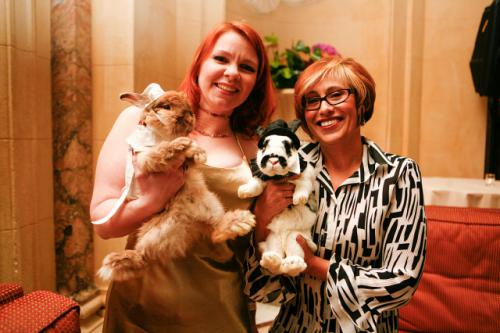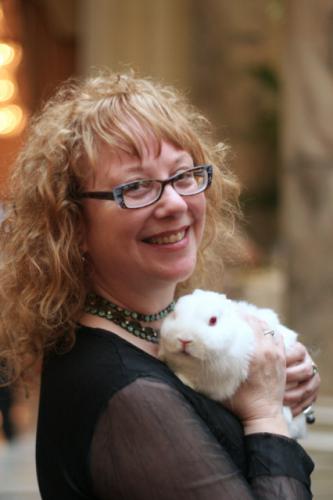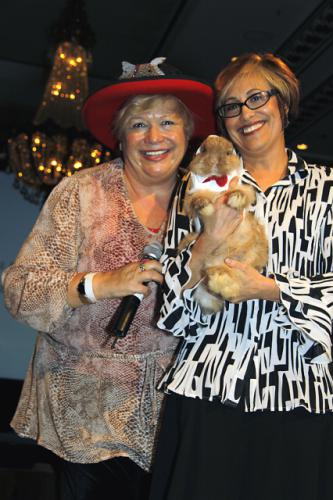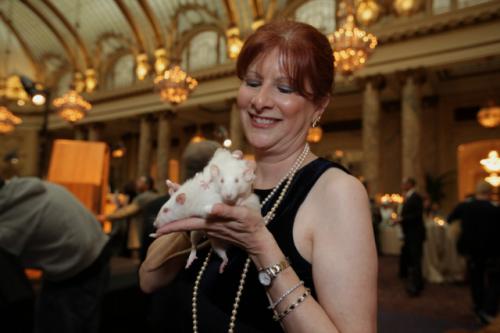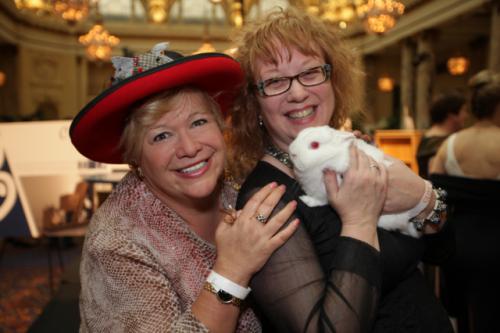Sadly, the July issue of Marin Magazine wrote a glowing recommendation of the "Thursday Night Rabbit Meat Special" at Piazza D'Angelo restaurant in Mill Valley.
Please politely express your opinions about rabbit meat to both Marin Magazine and Piazza D'Angelo. Here are 3 tips for writing letters to the editor or businesses:
- Be professional and courteous. Strive to educate and not argue.
-
Identify yourself as a concerned consumer with choices about how to spend your money. Avoid listing yourself as a member of a group, such as PETA, House Rabbit Society or SaveABunny. Unfortunately, sometimes being identified with a group will mistakenly get your opinion discounted as being "extremist" or "animal rights."
These places need to know that everyday customers and animal lovers in general (Not just rabbit owners)do not approve or support rabbit meat or fur.
- Continue the dialogue and don't stop at a form letter reply. Go to the next level of management or ownership and be persistent and polite.
Below is the official letter from SaveABunny that is being sent to Marin Magazine in response to the article:Jim Wood
Principal/Executive Editor
415-332-4800 x 106
jwood@marinmagazine.comPiazza D'Angelo, 22 Miller Ave., Mill Valley, 415.388.2000
Piazza D'AngeloHas Marin Lost Its Heart In the Pursuit of New Pleasures?
Here in Marin, most of us are fortunate to live in comfort and affluence as a sophisticated and educated community. We stretch our spiritual muscles at yoga classes, meditate at Spirit Rock, recycle our plastic and paper, volunteer at Marine Mammal Center or Guide Dogs for the Blind, and eat organic foods.
The value we place on leading a conscious, compassionate lifestyle is at odds with a trend now being promoted in “progressive,” animal–loving Marin County: the consumption of one of the nation’s most beloved and popular pets, bunny rabbits. Yes, everyone should have a choice about what they want to eat. Just please, let us be sure it is an educated and thoughtful choice.
Rabbits are loving, highly intelligent companion animals that are as smart and sensitive as cats and dogs. They learn to use a litter box like a cat, know their names, and bond for life with their human guardians and bunny mates. Even famed “tough guy” Clint Eastwood and his wife live with a pet bunny named “August” they adopted from a Monterey shelter.
In the July issue of Marin Magazine, accompanied by a photo, is #7 of “the New Classics”-- Piazza D’Angelo’s “Thursday Night Rabbit Dish.” Really? A whole evening devoted to consuming cute, gentle companion animals you can adopt for your kids at the Marin Humane Society? Is “Horse Meat Happy Hour” next? Would you eat a hotdog if it was actually “Hot Dog?” Like rabbit, horse meat is a traditional dish in other parts of the world, but it is verboten here. Same thing goes with dog or cat meat being a delicacy in other countries. We like to think we’re too civilized to eat our pets, which is what makes the attempted normalization of rabbit-eating so reprehensible here.
You don’t have to be a rabbit owner to be offended and saddened by the insensitivity of the Marin Magazine article and the “yuckiness” factor of the “Thursday night” special itself. If you love animals of any kind, you will realize that in this country, and especially in Marin, we simply don’t eat our pets. Although conscience-soothing buzzwords, like “green,” “sustainable” and “organic,” are now being employed to market rabbit meat, the fact remains that eating bunnies is NOT a compassionate or cruelty-free choice. Ultimately, it is no more than a decision to increase someone’s profits, not a revolutionary way to save our planet.
Did you know that the rabbits you see on restaurant menus like Poggio and Piazza D’Angelo are the exact same breed and type of rabbit as those who cuddle with you and your kids? Meat rabbits are not wild animals or game. In fact, “meat” rabbits cannot even breed with the wild rabbits in this country because they are so genetically different from one another.
The rabbit meat at Piazza D’Angelo and other Bay Area restaurants comes from the aptly named “Devil’s Gulch” ranch in West Marin, which by its own website lists 1000 rabbits per week being raised for meat. That’s a lot of bunnies.
According to the Devil’s Gulch website, the rabbits they raise are a mix of three popular breeds of pet rabbits: Rex, New Zealand and Californian. The website praises the “mellower temperament” of these bunnies as “helpful for their mothering ability and handling in general.” In other words, the very traits of being gentle and nurturing mothers––qualities that would normally make these rabbits excellent pets––are what make them ideal for quick slaughter. The rabbit you eat will likely be a teenager of about 6-8 months old or younger. It will also be the exact same type of bunny you could easily choose to bring home to become part of your family––a smart, funny, loving pet.
In the 1987 movie “Fatal Attraction” starring Glenn Close, the definitive proof of her character’s sociopathology was the moment when she boiled a little girl’s pet rabbit. Over 25 years later, Marin now has the dubious distinction of leading the way in trying to make money by creating a new niche for rabbit meat and pretending that it somehow makes sense. Are we really that bored with the other menu options? We certainly don’t lack for food and variety. And really, it would be more “green” for us to use our existing resources wisely, rather than creating new consumer demands.
What if you could choose your live rabbit meal from a lobster type tank? Imagine telling your friendly server, “Yes, my family and I want you to kill and cook the cute fluffy little white momma bunny in the corner. Oh, and bring fries on the side.” You might scoff at the idea of such a thing, but consider this undeniable fact: a bunny gets killed for the sake of a profit margin if you point to that dish on the menu Thursday night.
Has Marin lost its heart and forgotten the beauty of practicing acts of kindness---just for someone new to eat at dinner?

